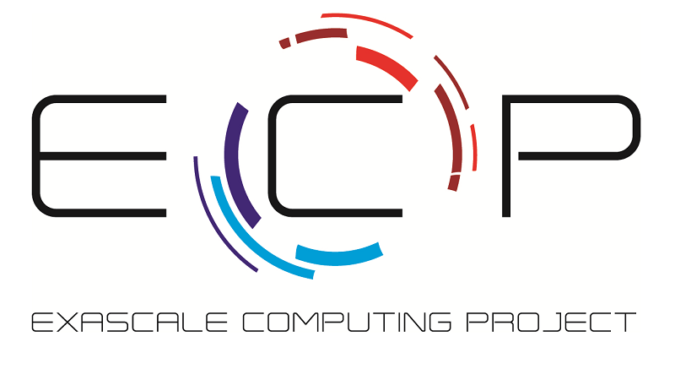The Department of Energy’s Exascale Computing Project (ECP) has named Doug Kothe as its new director effective October 1. He replaces Paul Messina, who is stepping down after two years to return to Argonne National Laboratory.
Kothe is a 32-year veteran of DOE’s National Laboratory System. He most recently served in Oak Ridge National Laboratory’s Computing and Computational Sciences Directorate and as the applications development lead for ECP. For the preceding five years, he led the Consortium for Advanced Simulation of Light Water Reactors, DOE’s first Energy Innovation Hub, which uses supercomputers to improve nuclear reactor performance.
 “Doug’s credentials in this area and familiarity with every aspect of the ECP make him the ideal person to build on the project’s strong momentum,” said Bill Goldstein, director of Lawrence Livermore National Laboratory and chairman of the ECP Board of Directors, which hired Kothe.
“Doug’s credentials in this area and familiarity with every aspect of the ECP make him the ideal person to build on the project’s strong momentum,” said Bill Goldstein, director of Lawrence Livermore National Laboratory and chairman of the ECP Board of Directors, which hired Kothe.
Kothe will be based at Oak Ridge National Laboratory, host of the ECP project office, where he will report to ORNL Director Thomas Zacharia. “Doug knows how to build strong collaborations across diverse disciplines and institutions—often among people who are typically competitors,” Zacharia said. “ECP’s success will require labs, companies, and universities to work together to accomplish something they can’t do alone: Building applications, software, and driving the hardware R&D that will enable the first U.S. exascale systems.”
Global competition is challenging U.S. leadership in high-performance computing, which has become a critical tool for accelerating solutions to problems in both science and industry. Other countries are making significant investments in both technology and research, seeking an advantage in the ongoing competition in HPC systems and software.
Exascale is the next level of performance for HPC. Today’s petascale systems are measured in quadrillions (1015) of calculations per second. Exascale systems will run at quintillions (1018) of calculations per second, more realistically simulating the processes involved in applications such as precision medicine, manufacturing, fuels and energy systems, and the nation’s stockpile stewardship program, as well as the unseen physics at work within materials and the fundamental forces of the universe. Exascale also holds tremendous potential for emerging disciplines such as large-scale data analytics, machine learning, and artificial intelligence.
The ECP was launched in 2016 as a collaboration between the DOE Office of Science and DOE’s National Nuclear Security Administration to provide exascale computing capability that is critical to DOE missions in national security, scientific discovery and economic competitiveness. The collaboration includes experts from six core national laboratories – Argonne, Lawrence Berkeley, Lawrence Livermore, Los Alamos, Oak Ridge and Sandia – along with representatives from industry and academia.
Kothe credited his predecessor’s leadership. “Paul’s management and mentoring of team members during start-up put us on a successful trajectory,” Kothe said. “My confidence going forward reflects the fact that the ECP scientists and engineers who are executing this plan are leaders in the HPC community and among the most talented in the world.”
At Argonne, Messina will return to focus on program development in the Computing, Environment, and Life Sciences Directorate and strategic computational science directions for the lab.
“I’m proud to have helped establish ECP,” Messina said. “It’s a fantastic team doing important work. I’m confident that the project will thrive in Doug’s capable hands.”
Said Goldstein, “Paul Messina’s leadership has been invaluable from day one – from establishing and building the ECP organization to strategic planning of the project’s deliverables to the execution of this critical national project over the past two years.”
Source: Department of Energy’s Exascale Computing Project



























































